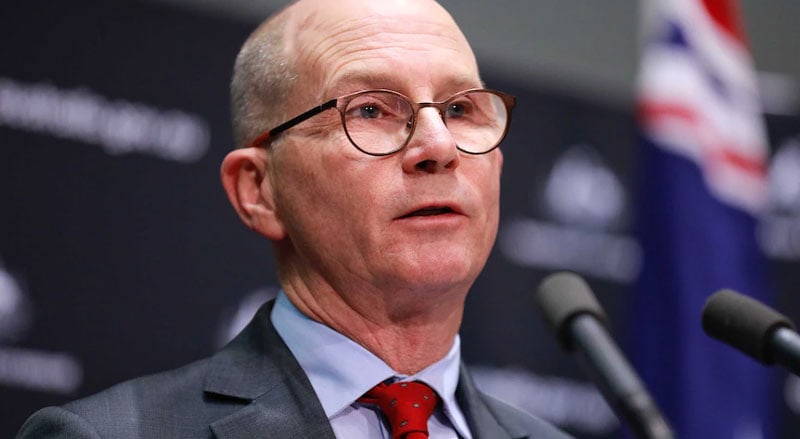Officials in Australia are raising the alarm as the country’s excess deaths have soared to an “incredibly high” rate.
Australia’s peak actuarial body is calling on the government to urgently investigate the country’s spike in deaths this year.
An analysis of Australian Bureau of Statistics (ABS) data by the Actuaries Institute shows a 13 percent rise in deaths during 2022.
The data revealed that an additional 15,400 people died in the first eight months of the year alone.
The deaths were listed as non-COVID-19 fatalities.
However, one-third of those extra deaths are people who have never contracted Covid, Actuaries confirmed.
Deaths from diseases other than COVID-19 represented nearly half of all deaths that otherwise would have been expected for the first four months of the year, according to AFR.
13% is an “incredibly high number for mortality,” and it is “not clear” what is driving the increase, said Karen Cutter, spokeswoman for the institute’s COVID-19 Mortality Working Group.
“Mortality doesn’t normally vary by more than 1 to 2%, so 13% is way higher than normal levels,” she said.
“I’m not aware [of anything comparable] in the recent past but I haven’t gone back and looked [historically].
“They talk about the flu season of 2017 being really bad, and the mortality there was 1% higher than normal.
“So it’s well outside the range of normal,” she said.
This came after Australia’s latest mortality data released in November showed that there had been 128,797 deaths from January 1 to August 31, which was 17% higher than the historical average.
The actuaries study found that doctor-certified deaths from cancer were close to expected, as has been the case so far throughout the pandemic.
However, deaths from heart disease, cerebrovascular disease, diabetes, and dementia were all higher than predicted by between 5 percent and 11 percent, or a total of 1200.
Deaths from other “unspecified” diseases were significantly higher than predicted, up by 11 percent or 1400, continuing a trend observed since April 2021.
The study noted this was a large “catch-all” category and it was difficult to infer the reason for the large increase.
Yet, the Australian government says it doesn’t know why no-Covid deaths are soaring.
Australia’s Chief Medical Officer Paul Kelly has a theory to explain the “incredibly high” rate of fatalities, nevertheless.
Kelly recently told the AMA national conference that deaths have been soaring since early 2021 because people were too well protected during the pandemic.
He argues that the high number of deaths is emerging now because people didn’t die during the pandemic due to being shielded from illness by the earlier restrictions, such as lockdowns, social distancing, and masking.
Professor Kelly said these measures delayed and reduced anticipated fatalities in the first two years of the pandemic.
Kelly described the deaths as “the reaping” delayed, a reference to the medieval grim reaper figure associated with plagues.
“The people that haven’t died in the last two years because we had no flu, because we did not have [high rates of] COVID and for various other reasons, are now, unfortunately, in that difficult position of being high risk despite the high vaccination rate, and that is by far the majority of people that are dying,” Professor Kelly claimed.
READ MORE: CDC: 1.1 Million Americans ‘Died Suddenly’ since Last Year

Our comment section is restricted to members of the Slay News community only.
To join, create a free account HERE.
If you are already a member, log in HERE.